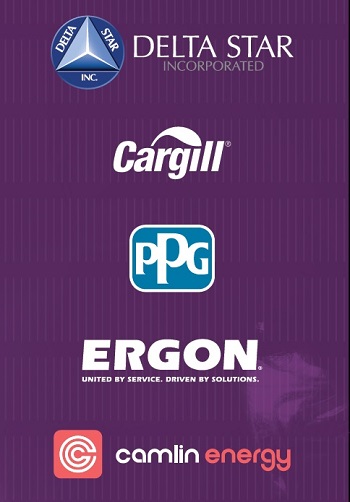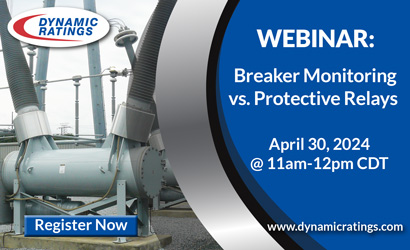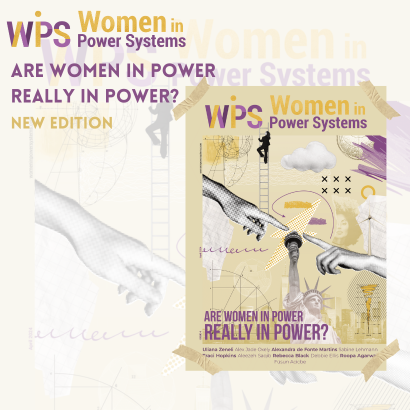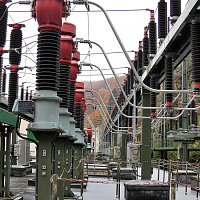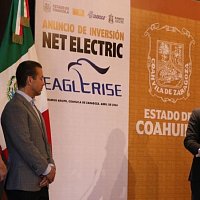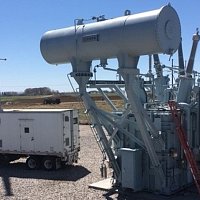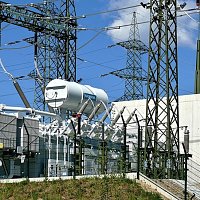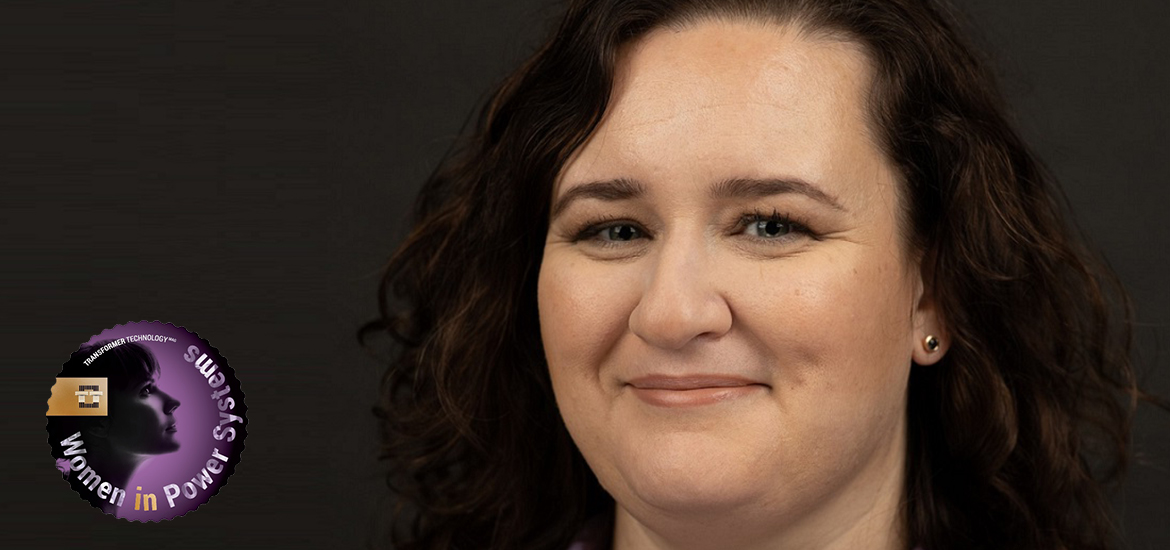
To read this article in the magazine, click here.
Interview with Traci N. Hopkins
Senior Training Advisor and Adjunct Instructor at SDMyers
In this interview, we spoke with a remarkable woman, Traci Nadine Hopkins, affectionately known as Tracita, who transitioned through several roles within one company, from the Training & Education Sales department, through the role of Diagnostic Analytic Coordinator for the international market, and then back to Training & Education advancing in her responsibilities, capabilities and expertise. Traci is a Valued IEEE Member, Member of the Association of Asset Management Professionals, an active member of WIRAM (Women in Reliability and Asset Management), an active member of Diversity and Reliability Consortium for Asset Management and a member of Reliabilityweb.com.
There are so many comparisons between household management and managing the electric power system. Sometimes people don’t recognize the creativity involved in both.
Rachel Linke
I am delighted to talk to a long-time colleague of mine. As an international instructor, a certified reliability leader (CRL), and a member of Women in Reliability and Asset Management (WIRAM), she has a wealth of knowledge. Traci, I know that, much like mine, your career did not start out in the power industry. I would like to know your story. How did you end up getting involved in the power industry?
Traci Hopkins
I had a colleague who worked at SDMyers and we had worked together previously. About two months after leaving that company, she called me and asked me if I still spoke Spanish. She said that the training department, which is where she was, needed a person that speaks Spanish. I applied and, nine years later, I am still speaking Spanish. (laughs). I am still with the same company, but that is how I got into power systems.
RL
Did it take a while for you to understand transformers?
TH
It did. It took me probably a good year to really get into it. My first six months were with the training department, and those were probably some of the most intimidating times of my life. I was mortified that I was speaking to engineers, electricians – technical professionals. I studied language, not electric power systems. Then I transferred over to the testing department. That is where I really got a lot of the knowledge and started to pick it up. It became more familiar and it started to become more natural.
RL
What was it about the power systems that you found intriguing enough to continue your career there?
TH
Everything. Until you work in the power industry, you don't think about how integral it is in everyday life. Before, I would just flick the lights on or plug my phone in and expect it to happen. Being on the inside changes how you look at it and makes you see how essential it is.
RL
You are the senior training education adviser for SDMyers Electric Power IQ.
What has that been like as far as training goes? What changes are you seeing within the industry? I am sure you do a lot in generational change. Can you tell us about that experience on your journey?
TH
I am really focusing on the generational shift. We have two groups of people that grew up in different times, who had a different way of learning. They each have their own unique strengths and weaknesses. COVID really brought this around for us, and we had to be able to marry those.
Take the “boomer” generation, for example. They are the ones who are starting to retire, leaving the business. But there are no people who want to replace them in power systems. Young people are going into computer science now.
It was a struggle to find the people who will replace the older generation.
Within my organization, I was the first woman to go through the certified reliability leader (CRL) course. I was in a class of about 40 people and less than 10% were female.
The second part of the struggle is that maintenance and management of substation components are not taught. If we talk about transformers specifically, which is my specialty with the Electric Power IQ, no one teaches about what tests you should be doing, how to interpret these tests and what type of maintenance is required when you get certain results. They are teaching you what a transformer is and what it does. So you need to find people who either know about that or are willing to learn about it.
On one side, you have the “boomer” generation that went to class, wrote everything down and used flash cards, and I am one of them. On the other side, you have the “millennial” generation, the majority of whom attended some sort of online class or got their degree online. Blending the types of learning between the two can be a challenge. COVID moved us into the direction of online learning. That has helped bring in a new wave of people to replace the older generation that is retiring. It really is a mass exodus.
Another challenge that we have is the “old school” generation who think that you treat every transformer the same way. You don’t, but when you are teaching that to the new people, you have to incorporate some of that old school knowledge, too.
RL
Yes, the younger generation seems to be looking at things differently. They are used to getting information instantaneously and being able to go forward, whereas the older generation has been able to learn and grow over time. Are there people that you have seen through training that didn't start off in the electrical engineering space, but somehow are now in charge of electrical equipment?
TH
I have met a few people who had been in administration and then got thrown into managing that electrical system as well. A lot of people tell us they were put in their position because they had managerial experience. My case is similar, I got my job because I could speak another language, so I can relate to them.
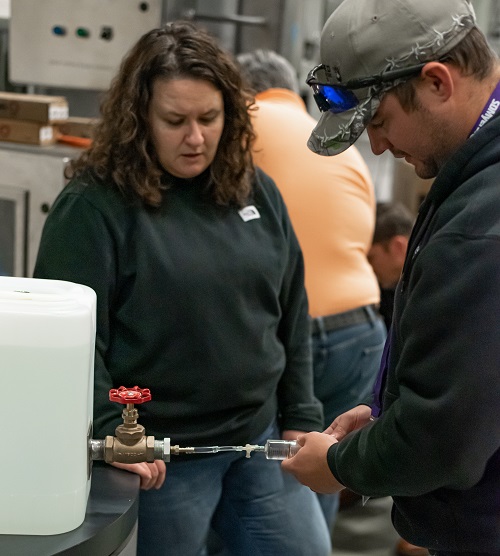
It is a male-dominated industry and, in order to fit in or to be taken seriously, you have to be one of the guys, which has been challenging. But that is also a generational thing, and we are moving out of that.
RL
That adds a whole new level of complexity to what you are trying to do. We mentioned that you are a certified reliability leader (CRL). Some of the organizations you are involved with, such as SDMyers, are focused on maintenance, but how did you get interested in reliability?
TH
For me, it was actually watching Alan Ross. He has such a passion for reliability and for spreading the word about it. When I watch him interact with some of what we call our reliability accounts and watching a couple of my colleagues who had already gone through the CRL process, that intrigued me, this new way of looking at the same thing. At one point Alan approached me and offered me to do this training. It worked out, and I went through the CRL class.
RL
I believe you are one of the few women, within your organization and wider, to go through that course. There aren’t many women who are CRLs, is that correct?
TH
There really weren’t. I was in a class of about 40 and less than 10% were female.
Within my organization, I was the first woman to go through that class. It is a nice honor to hold, definitely.
RL
That connected you with another organization, called WIRAM. How does that connect with what you do? Tell me how WIRAM has played a role in what you are doing and then where you see potential growth or opportunities.
TH
WIRAM is Women in Reliability and Asset Management. It is an organization that helps to empower women who work in those fields, and there are not very many women that do. You see more and more every day, I see more in our classes.
But that group creates an awareness and helps women to work through some of the unique struggles that they have in that field.
The organizations that you work with should recognize that the importance of your role within that organization is equal to the importance of your role in the family and allow you to let them overlap occasionally.
RL
I would like to hear more about that. I think women have tried to play the role of men in the industry, to be like men instead of taking their unique talents and abilities and applying that to their job. Tell me about some of the challenges and struggles that you have seen women go through.
TH
It is a male-dominated industry and, in order to fit in or to be taken seriously, you have to be one of the guys. Walking in wearing heels and a skirt isn’t going to garner you the same respect as walking in in your suit. That has been a challenge. Again, that is a generational thing, and you see we are moving out of that, which is great. I love to see the progress. The biggest challenge is getting that respect and being looked at as a subject matter expert.
The second challenge is the perception of women who have taken on more of the household roles as opposed to women who work, in areas such as reliability and asset management. If you break it down to the core, it is very similar to running a home. You have people who depend on you to make sure that the bills are paid and that they have clean socks. That is the reliability aspect of it, and the same thing can be said even in the electric power system. People depend on you to make sure that the bills are paid so you can get your testing done.
RL
Do you think these similarities help women find a good work-life balance? As a woman in the power industry, for me, the biggest challenge is managing between my work life and my home life as a mom of three. I think there is a different struggle that women deal with as opposed to men. What does the work-life balance look like for you?
Recognizing the role that women have both in and out of the of the home is only going to bring more to light how important our contributions are across the board when it comes to reliability and asset management because we have a different way of looking at it than men.
TH
For me, there is definitely a balance.
It has changed for me in the last year and a half as both of my boys have left and graduated and they are in the Marine Corps now. But when they were young, I had to find that work-life balance.
Working in an industry such as the electric power system has its own set of stressors and you have to be able to leave those stressors at work, not take them home with you.
Managing a household and having a family comes with another set of stressors. And there are times when they are going to overlap.
The organizations that you work with should recognize that the importance of your role within that organization is equal to the importance of your role in the family and allow you to let them overlap occasionally – bring work home, work odd hours. I have had to take my kids to the office with me before.
That is the biggest challenge and the most common thing I hear from women, getting that work-life balance in a high stress situation.
I think organizations like WIRAM help women figure out how to do that.
Companies like Good Place Holdings help the women in the organization have a better balance, as do initiatives like Women in Power Systems.
RL
I think there are certain things that women just have a different take on. For me, it is problem solving. You mentioned that, across the board, people are just not getting involved in the power industry, that there is a need for engineers. I think women can play a unique role in the power industry. How do you think we could encourage women to consider the power industry as a career?
TH
It has to start at the kindergarten level. Kids are exposed to engineering experiments all the time, whether it is a chemical experiment, the egg drop, construction and mechanical, etc. We should get kids excited about STEM, foster that and not discourage them if they mess up an experiment. It is also up to companies to step out into the local schools, approach the principals and superintendents and say, We really think it would benefit the community for kids to learn about what some of their parents do throughout the day.
As far as women go, they should not be discouraged and told things like, Maybe you should be a nurse or maybe you should go into teaching. Those are very respectable careers, I was a teacher for a while. But it is important to encourage women’s curiosity.
To have women consider power industry as a career, it is important to encourage women’s curiosity at a younger age.

RL
I agree, if you were to tell me I would have been in the power industry 12 years ago, I would have laughed at you. But I think people are just not even aware of the possibilities of what is out there. I think that is probably the first part – bringing awareness, but also emphasizing that women are a great fit for that industry.
I am especially intrigued by your role as an international instructor. What was that like, culturally and from the perspective of being a woman and an international expert?
TH
Let me put a disclaimer on these observations, they are solely based on my experience.
The first time I went overseas to teach a class was in Chile. To my surprise, there was actually a woman in the class. In every international class I have done, there has been at least one woman in the class. In comparison, I don't see that every time in the States.
That stood out to me and I thought, Rock on!
The first time I taught was a portion of our inspection and sampling class. I was nervous and worried I was going to use the wrong word in the wrong context. But I found there was so much encouragement.
I have had men and women come up to me and say it is great to see a woman doing this class, teaching this information.
Yes, your chest puffs out. And then you think, I am making a difference. I am influencing and encouraging other women, and men as well, to support and grow our community of women.
RL
I am really glad that that was your experience, that is exactly what we are trying to bring to the forefront with Women in Power Systems. Even in organizations that don’t have many women, we noticed a growing change. People have daughters and would love for them to be encouraged if they decide to become engineers.
The first time I taught an international class, I was nervous. But I had men and women come up to me and say it is great to see a woman doing this class. And I thought, I am making a difference. I am influencing and encouraging other women, and men as well!
Inspire, encourage and advocate has been our mantra. And throughout my careers, I have seen that it is definitely needed for women in this industry. Traci, thank you so much for joining me. You inspire me and encourage me, thank you for being a leader in that way. I cannot wait to see where you go from here.
WPS initiative is sponsored by
Charter Sponsors
